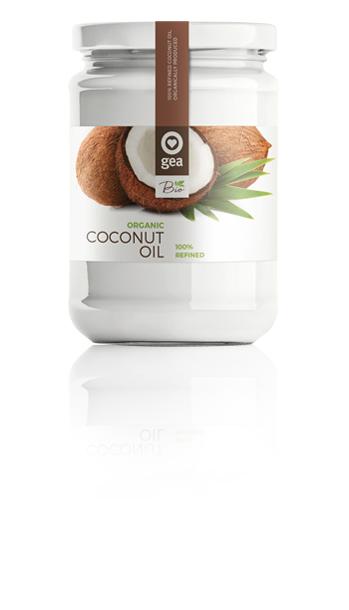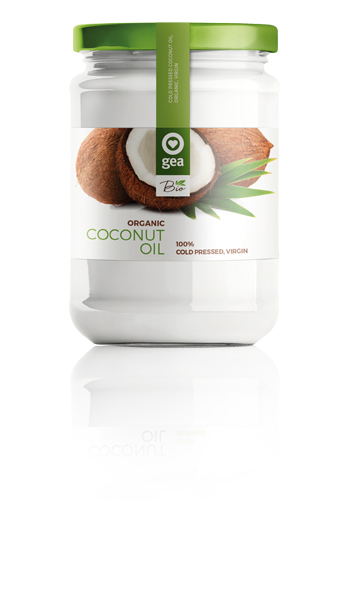GEA ORGANIC Coconut oil
refined coconut oil, organic


Non - EU Agriculture
We have acquired the certificate of organic production / processing of agriculture and food products in 2015.
Organic Certification is an internationally recognized set of standards aimed at proving that agricultural and food products have been produced with emphasis on the protection of soil and water, the enhancement of biodiversity and the responsible use of energy and natural resources.
GEA ORGANIC Coconut oil
refined coconut oil, organic
Ingredients
100 % refined coconut oil, organically produced
Characteristics
- produced through the process of refining coconut oil, which is pressed from the dry coconut kernel – copra
- without specific coconut smell or taste
- composed of saturated medium-chain fatty acids and does not include trans fatty acids
- contains 50 % lauric acid which is converted into mono-lauric acid which has antiviral and antibacterial properties
Nutritional values
| Average nutrition value | per 100 g |
|---|---|
| Energy | 3700 kJ/ 900 kcal |
| Fat | 100 g |
| of witch: | |
| - saturates | 91 g |
| - mono-unsaturates | 7 g |
| - polyunsaturates | 2 g |
| Carbohydrate | 0 g |
| - of witch sugars | 0 g |
| Protein | 0 g |
| Salt | 0 g |
Usage and storage
It is extremely resistant to high temperatures and therefore suitable for baking, roasting and frying.
Labels, awards, recognition

Non - EU Agriculture
We have acquired the certificate of organic production / processing of agriculture and food products in 2015.
Organic Certification is an internationally recognized set of standards aimed at proving that agricultural and food products have been produced with emphasis on the protection of soil and water, the enhancement of biodiversity and the responsible use of energy and natural resources.


